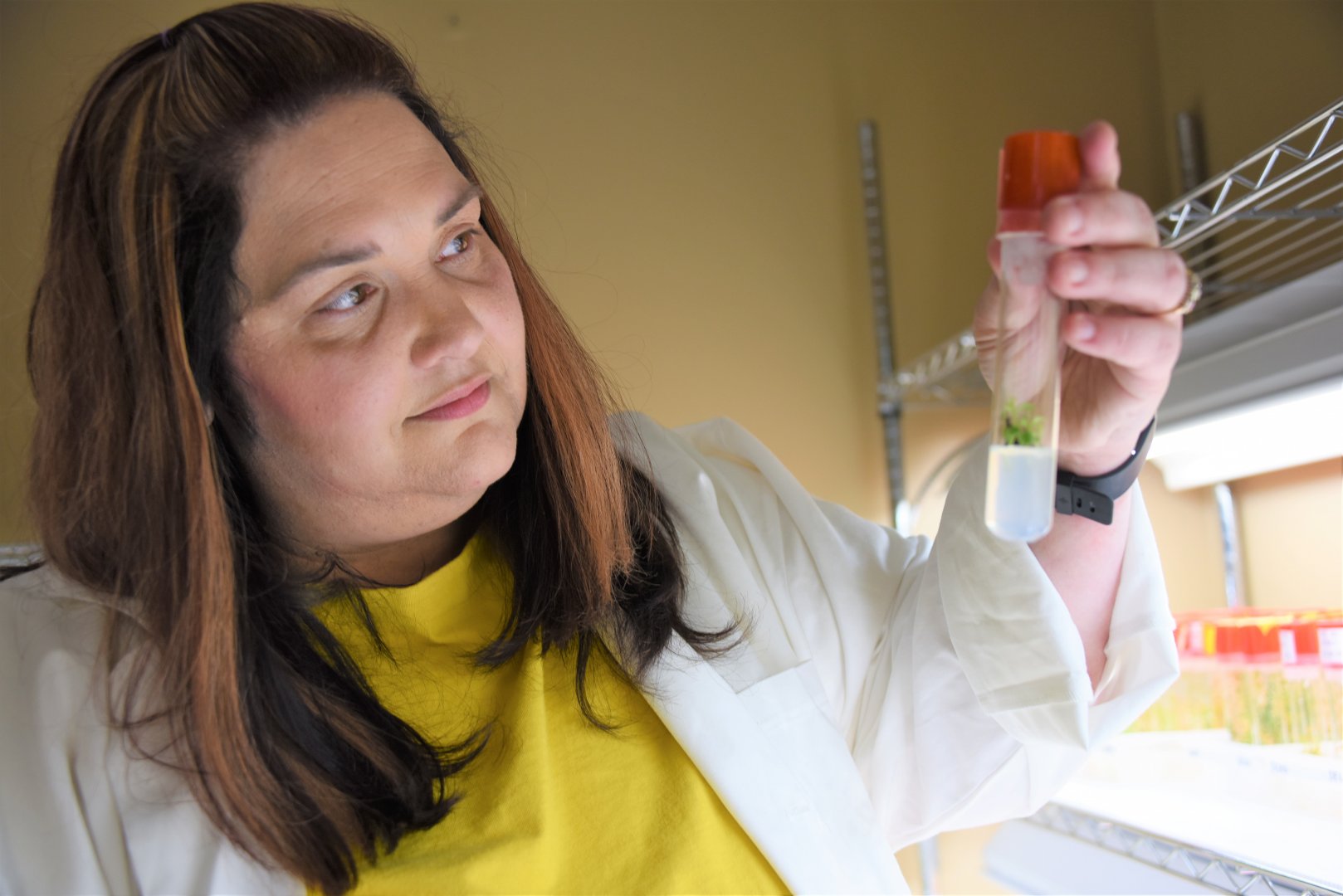A Fort Valley State University alumna is continuing her research endeavors in plant science at a fellow 1890 Land-Grant Institution, the University of Maryland Eastern Shore (UMES).
Lani Irvin, who earned her Master of Science in biotechnology at FVSU, is pursuing her doctorate in the agricultural sciences program at UMES in fall 2020. Her research will focus on grapes and gene editing to improve disease resistant varieties.
“I am excited to work on producing successful grapevine crops. Grapes are grown and consumed worldwide as fresh fruit, jams, jellies, juice and wine. They are beneficial for human and animal health because of the antioxidant and anti-inflammatory properties they possess,” Irvin said.
The biotechnology graduate first became fascinated with plants while pursuing her bachelor’s degree in biology at Middle Georgia State University. “I did not know until my senior year of undergrad that I was a plant person,” Irvin said.
After graduating in 2015, she met Dr. Nirmal Joshee, a FVSU plant science professor, who exposed her to more plant research while pursuing her master’s degree at FVSU.
“I have always been interested in alternative medicine and plant pathology,” Irvin said. “I feel like everything on Earth is here for a purpose and I believe the cure for many diseases can be found in plants.”
Upon graduating in 2017, she returned to her alma mater, Middle Georgia State University, to teach biology. However, she continues her research on Scutellaria at FVSU.
“Scutellaria is a medicinal plant. There are more than 360 species of Scutellaria found throughout the world,” Irvin said. She read an article on the analysis of 13 herbal products that claimed to have Scutellaria in them. “What they came to find out is that only five of those products had what they claimed to have in them,” she said.
Using biotechnology tools, Irvin wants to create a DNA barcode system similar to Universal Product Codes, which track trade items in stores.
This led the biology instructor to research the molecular characterization of Scutellaria species for her graduate thesis project. She said approximately 70 percent of the global human population uses medicinal plants as a source of primary health care and in plant-based products, including shampoo, daily vitamins, medicine, toothpaste, face cream, spices and tea.
“If people expect to have Scutellaria in their herbal supplement, it should be there and should not be adulterated with anything that can cause harm to them or an inferior product,” she said.
Her goal is to find a short sequence in plants that scientists can identify rapidly through the Barcode of Life Database (BOLD) and the GenBank sequence database. However, Irvin said this is a challenging process.
“With animal species, you can use one gene to differentiate species. With plants, you have to do a combination of genes. We chose two chloroplast genes and a nuclear gene and compared them to some of their nuclear DNA to see if we can find a sequence that is short enough to produce a barcode,” Irvin said.
Throughout her three-year research, she worked on 22 Scutellaria species (collected by Joshee) that are located in the on-campus greenhouse. After collecting the leaves and extracting the DNA, she verified the purity of the sample and then amplified the DNA sequences. “When you amplify the specific regions, you can see the gene of interest,” she explained.
Closer to establishing a sequence, the FVSU alumna said the process involves feeding the data into a computer program that will provide the statistical analysis. She collaborates with a bioinformatics professor in Spain to interpret the data. This exercise will help her develop a DNA barcode for Scutellaria so that she can score its presence or absence using molecular tools.
In addition, the plant scientist is interested in Ocmulgee skullcap (Scutellaria ocmulgee) and the large-flowered skullcap (Scutellaria montana). The Ocmulgee skullcap (found in Georgia and South Carolina) and the large-flowered skullcap (found in Tennessee and Georgia) are vanishing in wild populations. Their conservation is an immediate concern.
Irvin said being a graduate student at FVSU gave her the opportunity and exposure that she needed to prepare for a doctorate program. She commended her involvement in graduate research, learning about instrumentations and interacting with fellow graduate students and researchers at international conferences.
For her barcoding research, Irvin received financial support as a graduate research assistant through the Strengthening Minority-Serving Institutions project, “Advancing Graduate Education in the STEM Disciplines for the Underserved African American and Low-Income American Population.” The U.S. Department of Education funded this project.

